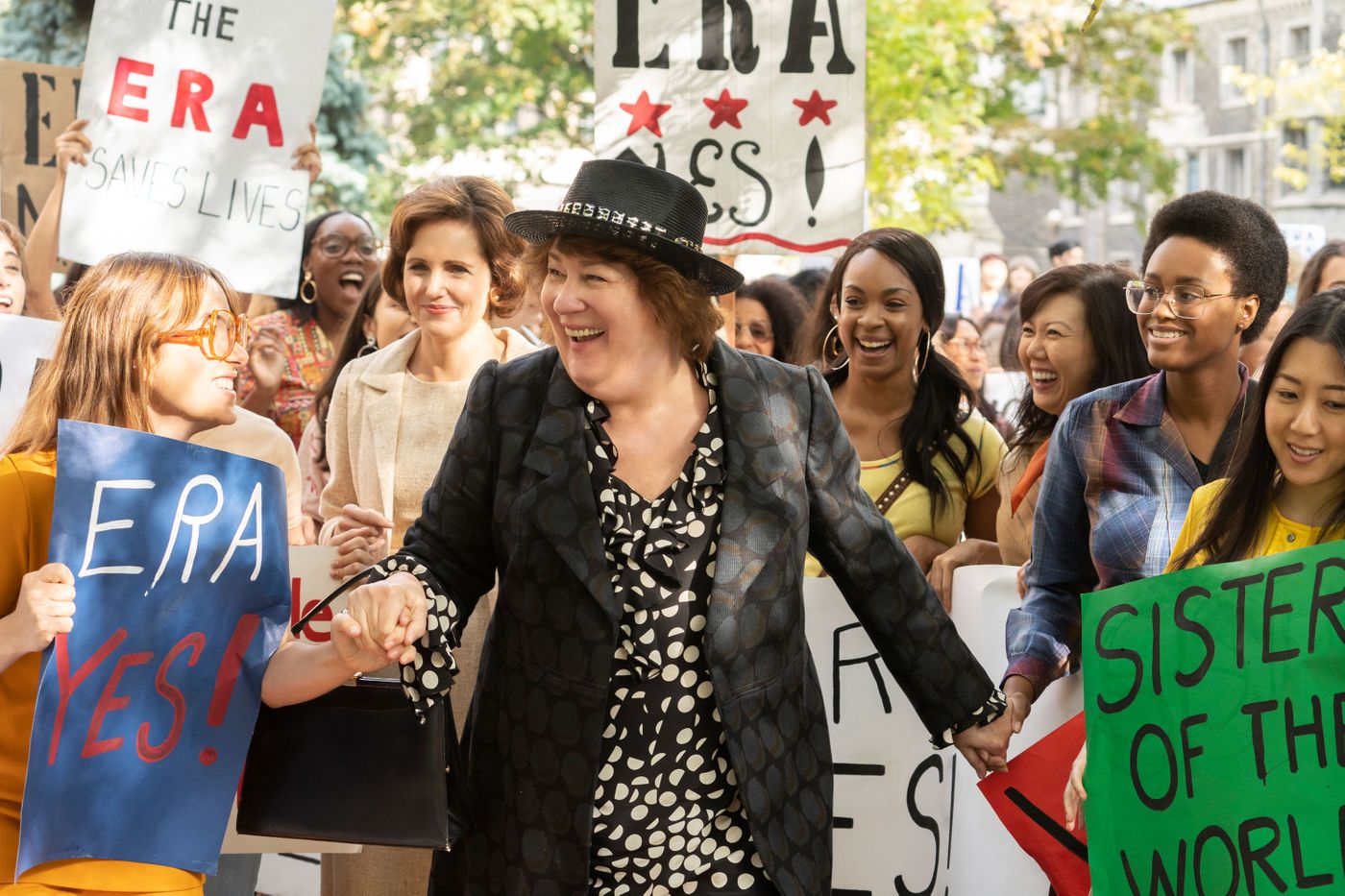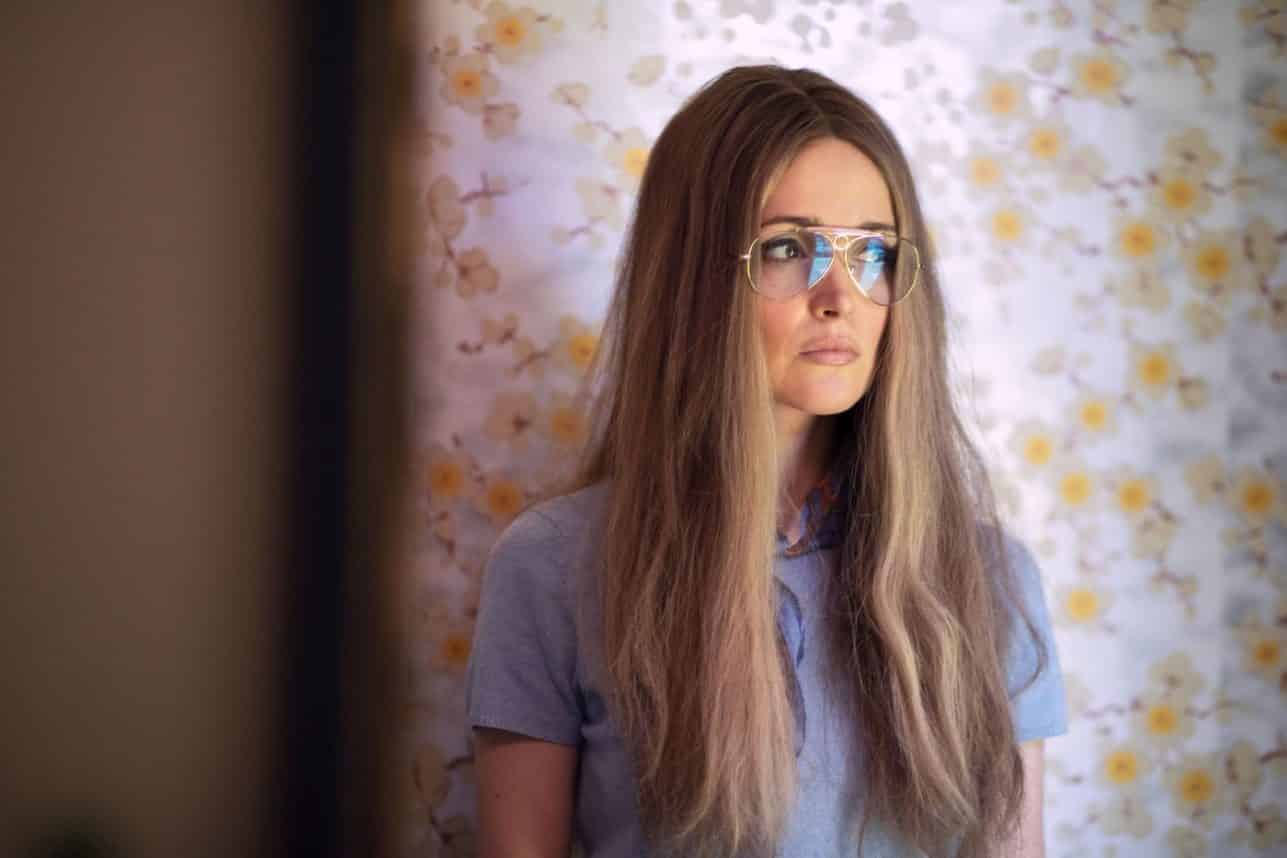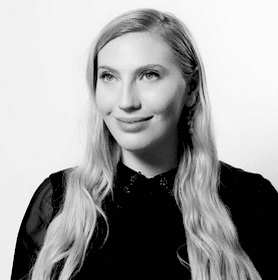 “Mrs America.” Credit: Sabrina Lantos/FX
“Mrs America.” Credit: Sabrina Lantos/FX
Although Phyllis Schlafly has become notorious for her role in impeding the Equal Rights Amendment from becoming ratified, the FX series “Mrs. America,” which chronicles her life in the 1960s, highlights her greater effect on U.S. politics: awakening the religious right.
The series depicts how although Schlafly, portrayed by Cate Blanchett, was the symbol of a satisfied American homemaker, she had political ambitions. She was on the frontlines when it came to rallying Christian women, who were particularly incensed by the recent legalization of abortion. Schlafly enlisted thousands to her direct mailing list. In the show, Schlafly is intent on becoming the Secretary of Defense, and handing over her vast grassroots contacts was integral in helping Ronald Reagan becoming president.
Who could stand up to a figure as formidable, organized and savvy as Phyllis Schlafly?
Jewish women.
“Mrs. America” explicitly celebrates the Jewish pioneers of second-wave feminism, dedicating episodes to Gloria Steinem, Bella Abzug and Betty Friedan. As it frames the fight over the Equal Rights Amendment around a bigger culture war between “family values” — often a pseudonym for Christian dogma — it highlights how a group of outspoken Jews was the perfect foil.
First, there was Steinem. Born to a Jewish father, she is portrayed as glamorous but representative of the Jews in the 1960s committed to racial justice and inclusion. In the series, Steinem (played by Rose Byrne) refuses to compromise when it comes to making space for queer and black women, even when it makes legislation harder to pass. She is unwavering in her support of Shirley Chisholm (played by Uzo Aduba), the first black woman elected to the United States Congress as she runs for president, even when that alienates more established politicians from the feminism movement. Steinem resembles many Jewish women today who believe their liberation is bound to the freedom of all targeted minorities.

In real life, Steinem used Jewish tradition to promote sisterhood. For 20 years, the feminist icon has held “sister seders,” where she invites women over for Passover. In 1976, she attended what likely was the first seder in history to be held by women only, re-envisioning the holiday through a feminist lens. The story of the four sons was changed to four daughters, the four questions revised to reflect women’s questions, and 10 extra plagues that drain modern women were added, such as self-loathing, envy and sexist discrimination.
Who could stand up to a figure as formidable, organized and savvy as Phyllis Schlafly? Jewish women.
Steinem is at odds with another Jewish feminist icon, Betty Friedan (played by Tracey Ullman). Historically, Friedan was arguably the founder of second-wave feminism. Her book “The Feminine Mystique” coined “the problem that has no name,” describing how American women had a “strange stirring, a sense of dissatisfaction” from being confined to home life and deprived of greater ambition and opportunity in the world. She founded the National Organization for Women, and many feminists at the time credited her work for calling them to action. She also led a life of intrinsically Jewish activism, leading a delegation of “Women as Jews, Jews as Women” to engage in a dialogue about the United States-Israel relationship, which resulted in the founding of the Israel Women’s Network.
However, in the series, Friedan is a struggling single Jewish mother to both her daughter and the feminist movement. She feels unappreciated and ostracized, partially because of her regressive views on LGBTQ equality. Yet, she wrestles with a stereotype by which many Jewish women still are plagued: being too difficult. She grapples with being painted as a Jewish bulldog against Schlafly’s mannerly mischief and not fitting the more white, Anglo-Saxon Protestant depiction of a lady — as well as the more mainstream, glamorous depiction of feminism Steinem portrays.
However, the show sits in that reality and gives us an empathic depiction of Friedan, her loneliness and her desire to be acknowledged in her personal, professional and political lives.

“Mrs. America” highlights how Friedan becomes more accepting of queer women. In a moving scene, she seconds a lesbian-rights resolution “which everyone thought I would oppose” at the National Women’s Conference in 1977. Historically, Friedan went on to advocate for lesbians at the United Nations during the AIDS crisis in the 1980s.
One of the most heartfelt and undeniably Jewish moments in “Mrs. America” is when Friedan offers to make homemade chicken soup for stressed-out Bella Abzug (played by Margot Martindale), who is unapologetically Jewish on- and off-screen.
Congresswoman Abzug, known as “Battling Bella,” was not only one of the first women in Congress, but a founder of the National Women’s Political Caucus. In the show, she represents the strong tradition of Jewish activism within legal and political systems, making hard compromises and strategic policies. However, historically, Abzug’s feminism is intrinsically tied to her Judaism.
The only child of Russian Jewish immigrants, Abzug ideologies were cemented after her father died when she was 13. Her Orthodox synagogue refused to allow her to say the mourner’s Kaddish for him because she was a woman. Since there were no men in the family who could pay that spiritual tribute to her father, Abzug began her life of feminist activism by going to synagogue every morning to recite the prayer anyway. Despite the sexism she experienced within Judaism, Abzug never abandoned that identity, and even attended the Jewish Theological Seminary.
Bella Abzug’s feminism is intrinsically tied to her Judaism.
“Mrs. America” honors Abzug’s strong and complicated Jewish identity. On the show, she experiences anti-Semitism and is acutely aware of it. “Mrs. Carter thought you were pushy and loud,” the assistant to the president tells her in Episode 7. “You know that’s code for Jewish,” Abzug fires back.
Unlike Friedan, Abzug embraces her pushiness. She’s proud to be overbearing, despite understanding that people will weaponize it against her. The series allows Abzug moments to interact with her religious identity in a more joyful way. “I couldn’t get elected president of the brunch chapter of Hadassah,” she jokes in one scene.
Although “Mrs. America” bills itself as a series about Phyllis Schlafly, it’s truly a love letter to the Jewish women who stood against her and for other women. At the end of the series, Schlafly’s closest allies and personal friends splinter from her and her movement. But when Abzug is unfairly fired as head of President Jimmy Carter’s National Advisory Commission for Women, every member resigns. The heroes in “Mrs. America” and its creators remain loyal to “pushy and loud” — aka Jewish — women, despite everything.
“Mrs. America” currently is streaming on Hulu.
Ariel Sobel is the Journal’s social media editor.























 More news and opinions than at a Shabbat dinner, right in your inbox.
More news and opinions than at a Shabbat dinner, right in your inbox.